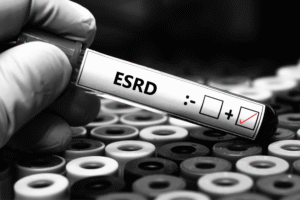Did you know you will have a penalty if you continue to contribute to your HSA and have Medicare? What about your ability to pay some Medicare expenses with your HSA? There are many things to consider for people how have a Health Savings Account and are approaching Medicare eligibility. Here are answers to common questions on how Medicare and Health Savings Accounts (HSA) work together.
What is a Health Savings Account?
An HSA is for individuals enrolled in a High Deductible Health Plan (HDHP). The HSA allows these individuals to set aside, pre-tax dollars that can be used to pay for qualified medical expenses. In order to continue contributing to an HSA, you must continue to have a High Deductible Health Plan without other coverage.
How does enrolling in Medicare affect contributions to a Health Savings account?
Unfortunately, no. If you have a HDHP and contribute to an HSA, you cannot continue contributions once enrolled in Medicare. Medicare does not have any plans that meet the HDHP requirements for an HSA. This is true even if you keep your current HDHP when you enroll in Medicare Part A and/or Part B. The current guidelines to contribute to your HSA state that you cannot have any health insurance other than the HDHP. Medicare Part A and/or B would fall into this “other” health insurance category.
Warning for when you retire: You cannot contribute to an HSA in any month that you are enrolled in Medicare. And there’s a pitfall inherent in that rule that you need to be aware of. When you finally sign up for Social Security retirement benefits—probably when you’re on the point of retirement—and if you’re already at least six months beyond your full retirement age (currently 66)—Social Security will give you six months of “back pay” in retirement benefits. It’s a generous gesture, but it means that your enrollment in Part A will also be backdated by six months. Under IRS rules, that leaves you liable to pay six months of tax penalties on your HSA. To avoid the penalties, you need to stop contributing to your account six months before you apply for Social Security retirement benefits.
Can I use my existing HSA funds to pay for Medicare related expenses?
The good news is that you can still use your HSA account when you get Medicare coverage. You do not need to maintain a HDHP to use the funds you have already contributed to your account, you just won’t be able to contribute any more money. These funds can be used to pay for the normal qualified medical expenses, as well as to pay for Medicare Parts A, B, and D premiums and Medicare Advantage premiums. However, Medigap policies (Medicare Supplements) do not qualify to use HSA funds without penalty or tax.
Important note: If you are over 65, then you can access your HSA funds for non-medical qualifying expenses without the 20% penalty, but those funds will still be subject to regular income tax. This means you can withdrawal to pay for Medigap policy premiums without penalty, but even though you don’t have a penalty you will have to pay income tax since the medigap policy premiums are not considered to be a qualifying medical expense.
We know you might have other Medicare questions, and many can be pretty common! You can find some of the most asked Medicare questions with answers on our FAQ page. Our friendly, licensed agents are here if you need assistance understanding Medicare and choosing a plan. Consultations are free, we are happy to help! Contact us HERE.






